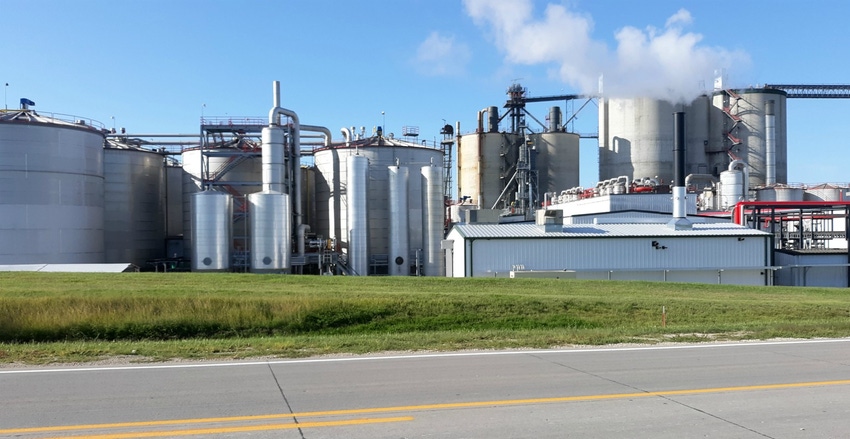February 14, 2020

Upon initial release of the Iowa Democratic Party’s 2020 Iowa caucus results, members of a group known as Biofuels Vision 2020 were gratified to see presidential candidates Pete Buttigieg, Bernie Sanders and all top finishers in the caucus exhibit strong support for ethanol and biodiesel during the campaign in Iowa.
“We are happy to see our efforts helped renewable fuels be a focus of the 2020 Iowa caucus, with all the leading candidates for U.S. president supportive of our top issues, like fully implementing the renewable fuels standard, or RFS,” says Derek Snyder, executive director of Biofuels Vision 2020. “Biofuels represent the perfect way to combine a positive economic future for rural America with a low carbon economy, so these issues will remain important throughout the rest of the primary season and into the general election in November.”
Biofuels Vision 2020 is a coalition of organizations and individuals committed to educating candidates in both parties about the production and use of renewable fuels in the U.S.
Where candidates stand on biofuels
Biofuels Vision 2020 spent months asking candidates directly about ethanol and biodiesel issues, such as:
implementing the RFS as intended
only granting SREs when verifiable harm exists
committing to the growing role of corn ethanol and soy biodiesel
supporting year-round E15
prioritizing open and free markets for biofuels in trade negotiations
supporting long-term extensions of biodiesel and cellulosic tax credits
All leading candidates supported the top six issues to the biofuels industry. To see individual candidate statements on these issues, visit biofuelsvision.com.
Despite the delay and related problems with tallying the final results for the Democrats running in the 2020 Iowa caucus, Snyder thinks the Iowa caucus provides a helpful opportunity to educate candidates and voters in urban areas of the U.S. on issues important to rural America, like biofuels.
“As presidential candidates crisscrossed Iowa’s 99 counties, they saw the importance of agriculture to rural Iowans and heard over and over how the strong demand for renewable fuel is a key driver for farm income. Given this engagement, it was easy for the candidates to envision a future where biofuels play a growing role in combating climate change, growing our clean energy supply and supporting rural economies,” he says.
Ditching the Iowa caucuses?
In the wake of Iowa’s digital vote counting disaster in the 2020 Democratic caucus, political analysts and pollsters are asking: Should Iowa continue to have “first in the nation status” for voting in the primary election process? The first state to vote sets the pace in choosing a candidate from each party to run in the general election in November. If Iowa is dethroned from being the first caucus state, one of Iowa’s largest industries could also be dethroned: renewable fuel — ethanol and biodiesel.
For decades, the debate over ethanol’s use as a renewable fuel and the government policies supporting it has been part of the presidential candidates’ run in Iowa. Corn is Iowa’s biggest crop and about 40% of it each year goes to make ethanol: the biofuel mixed with gasoline to power motor vehicles nationwide. The ethanol industry pumps $5 billion per year into Iowa’s economy and the state’s 43 ethanol production plants help support more than 40,000 jobs.
Today, candidates seeking to win Iowa’s caucuses know their position on ethanol will be crucial. In the 2020 caucus cycle, at least nine presidential candidates, including President Donald Trump, visited Iowa ethanol production facilities to chat and get photo-ops. Policy positions of the candidates shift. For example, Sanders in 2011 voted to end ethanol subsidies. But in Iowa this past November, he said, “Biofuels and other sustainable energy is exactly the direction we have got to go.”
To win Iowa, you are pro-ethanol
To win Iowa, you must be pro-ethanol. Some candidates learn the hard way. In 2016, Republican U.S. Sen. Ted Cruz of Texas rejected ethanol and won the Iowa caucuses anyway, but he lost a lot of voter support as time went on in his presidential run. The candidates this year didn’t want to take the gamble.
Today, support for ethanol can be a tricky matter for politicians, Democrat and Republican, and not just those seeking a presidential nomination. For Republicans who favor increased fossil fuel production and cheap natural gas, ethanol is considered an economic drain and an unfairly advantaged competitor due to subsidies it gets.
The Trump administration has had to walk the ethanol tightrope. In 2019, it allowed year-round use of E15 — which annoyed the petroleum fuel industry. Trump also promised to offer more RFS waivers to small refineries — to the displeasure of ethanol supporters.
Environmental support for ethanol
In previous presidential elections such as 2016 and prior, many environmental groups supported ethanol. But a lot of the green groups have now turned away from supporting this biofuel, arguing that electric cars are a better option than gasoline-powered cars, with ethanol replacing part of the gasoline. Environmentalists who oppose biofuels say ethanol and biodiesel have been a disappointment in environmental performance and success in reducing climate change. However, a USDA study released in 2019 showed that lifetime emissions from burning corn-based ethanol were 39% to 43% lower than traditional gasoline.
If Iowa loses its stature and in the future is no longer the first state to hold a caucus, would that allow candidates to be more flexible in developing their policies on ethanol? It would depend on which state takes Iowa’s place. If it’s still a state in the Corn Belt such as Illinois, Indiana, Minnesota or Nebraska, then ethanol would likely remain a discussion point in the debates on political issues and policy. However, even if the first state isn’t in the Corn Belt or the Midwest, presidential candidates will still face a state-focused test, as every state has its own economic driver and issues.
You May Also Like




